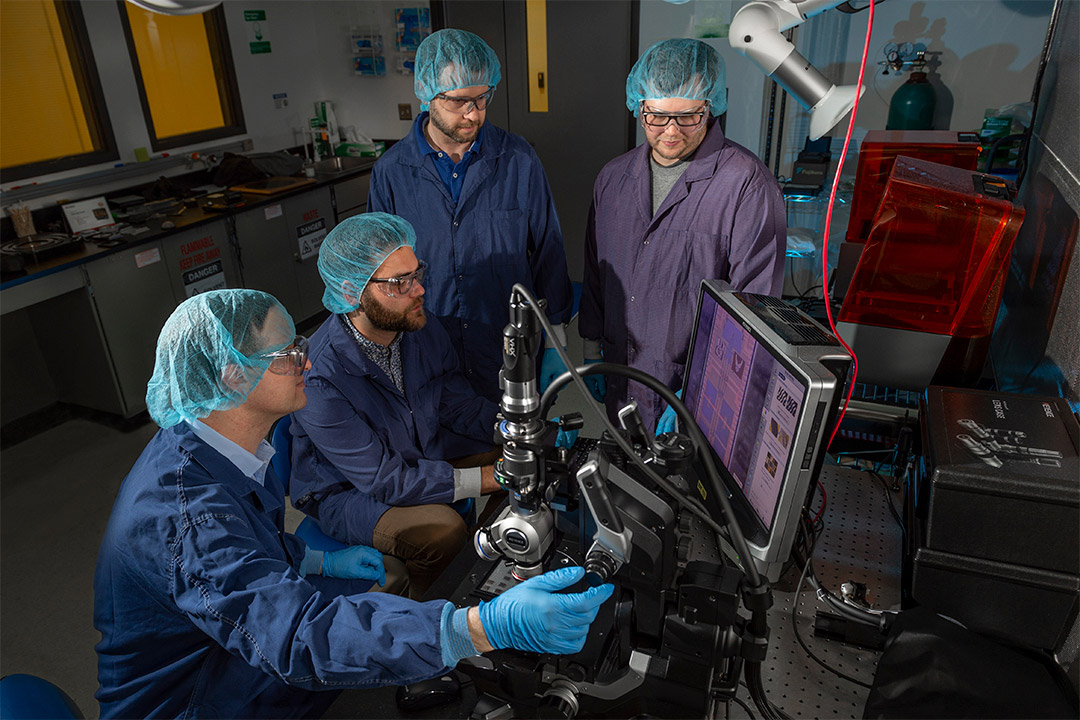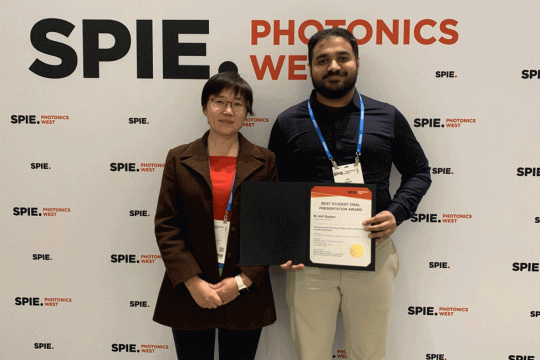RIT launching virtual speaker series featuring global leaders in quantum and photonics
Virtual Photonics for Quantum Workshop will air weekdays at 1 p.m. from June 23 to July 22
Elizabeth Lamark
Researchers from RIT's Future Photon Initiative in collaboration with Air Force produced the Department of Defense first ever fully integrated quantum photonics wafer.
Rochester Institute of Technology is launching an online speaker series that will feature international pioneers in the advancement of photonics for quantum devices. The Virtual Photonics for Quantum Workshop begins June 23 and will feature new invited talks each weekday at 1 p.m. through Aug. 7.
The virtual workshop aims to explore how photonic devices may impact quantum science, technology and applications. Topics will focus on quantum technology development in five main applications— computing, communication, imaging, sensing and clocks.
“We are excited to bring together the world’s leaders in the field of quantum science and technology despite the challenges presented by the pandemic,” said Don Figer, director of RIT’s Future Photon Initiative and the Center for Detectors. “After last year’s major breakthrough in quantum supremacy, momentum continues to build in the field and we believe photonic devices will be key to unlocking the power of quantum technology.”
The series kicks off with a presentation by Greg Fuchs, an associate professor in the School of Applied and Engineering Physics at Cornell University, at 1 p.m. on Tuesday, June 23. Additional speakers will include academic and industry experts from MIT, Dartmouth College, University of Wisconsin, University of Arizona, RMIT University, University of Vienna, Purdue University, Xanadu and more.
A detailed lineup of speakers is posted to the Photonics for Quantum website. Each talk in the series is free to view, but registration is required.
In addition to RIT, this year’s workshop is sponsored by L3Harris, SPIE, TOPTICA Photonics, Teledyne Princeton Instruments, Hamamatsu Photonics, ID Quantique, Photonics Media, Single Quantum and Quantum Design. It is also partially funded by a National Science Foundation grant that supports an RIT-led team to propose an NSF Quantum Leap Challenge Institute.











